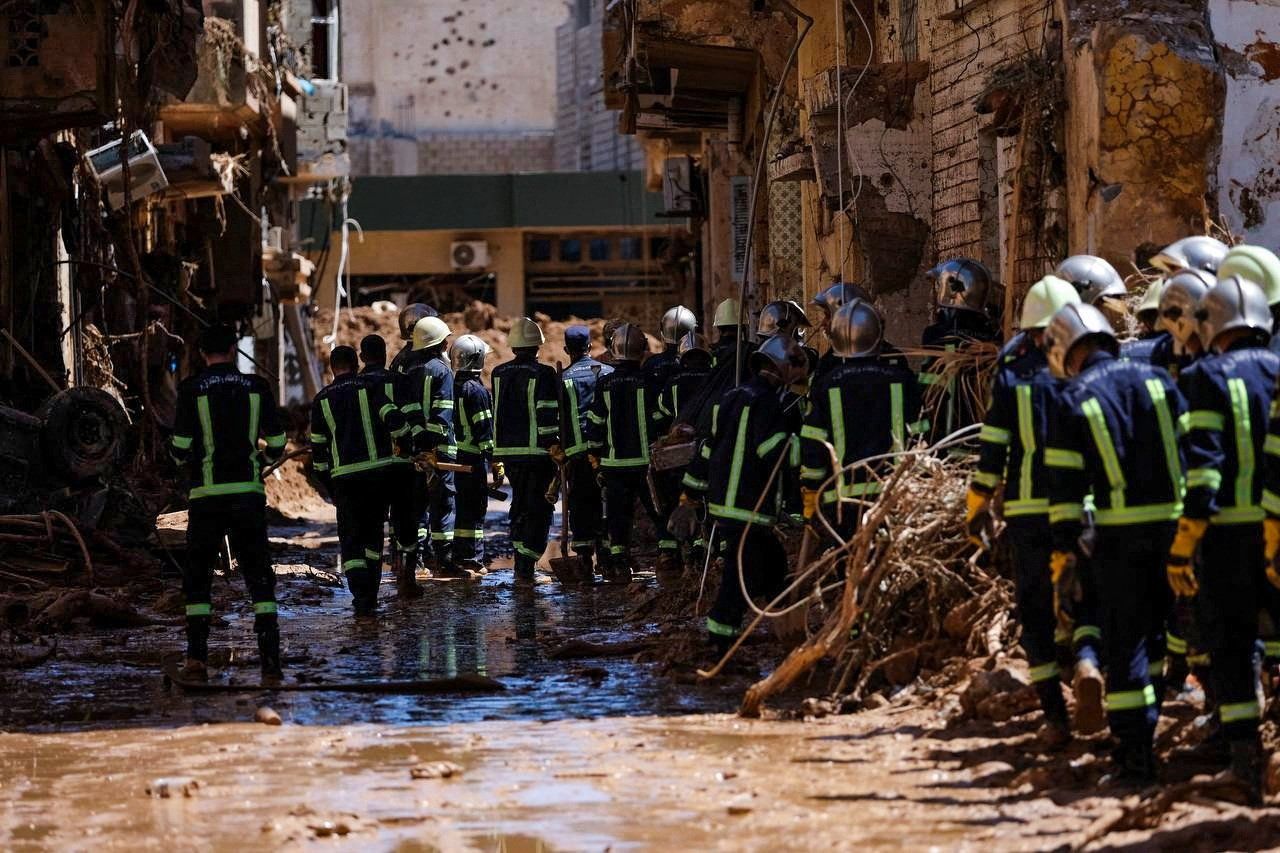The death toll continues to rise in Libya, where at least 6,000 are now dead after two dams in the eastern part of the country burst due to torrential flooding. Most of the carnage is in the Mediterranean city of Derna.
The statistics are grim. The UN says that as many as 30,000 have been displaced, while other observers estimate that the death toll could rise to a staggering 20,000 as bodies continue to wash up on shore.
So far, the rescue effort has been grueling Debris and mud are hindering access to hard-hit communities. Meanwhile, destroyed roads and bridges are also compounding shortages of food and water.
Making matters worse, Libya has been mired in civil war for a decade, and political factionalism is further complicating rescue efforts.(More on that here.)
As chances of finding victims alive diminish, attention is shifting to how this part of the country became such a deathtrap. Analysts say that the dams had not been maintained by warring authorities for years, and never had any hope of suppressing heavy waters.